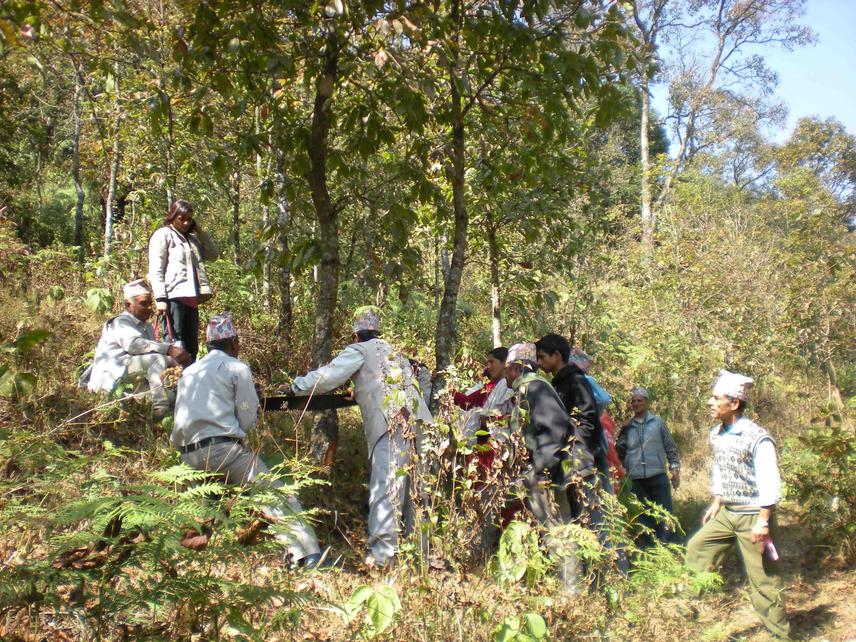Dol Raj Thanet
Other projects
1 Dec 2010
Community Based Human-Tiger Conflict Mitigation in the Western Sector of the Buffer Zone of Chitwan National Park
8 Mar 2018
Understanding Human-Tiger Interactions: Implication for Human-Tiger Conflict Mitigation in Chitwan National Park, Nepal
This project aims to raise awareness amongst local underprivileged ethnic groups and secondary level students and strengthen their capacity in sustainable management and conservation of biodiversity through training and conservation education program.

This one year project will focus on capacity building of local communities to support biodiversity conservation, anti-poaching, awareness programs to youths, students, farmers and underprivileged groups, and sustainable management of buffer zone forest, grassland and park ecosystem as a whole. The project aims to change negative attitude of communities against conservation and reduce threats through their involvement. Community participation will be encouraged in each project activities and special attention given to women groups, underprivileged groups, youth clubs and students, and mobilize them in conservation programs.
This project will also explore how extinction of one animal species affects the survival of other species in the ecosystem, and encourage people to develop "their primary role in biodiversity conservation and maintain a rich natural resources that permits coexistence of wildlife and human in future”. It is assumed that "when people understand the roles of tiger/rhinoceros and other species in maintaining the ecosystem and how it helps in their livelihood then they can be more interested in protecting tiger/rhinoceros instead of poaching them".
Community based conservation approach has no other alternative for the continued existence of these flagship species and biodiversity as a whole. Strengthening, encouraging and supporting conservation activities of women, underprivileged groups, youth and students groups and conservation education programme will bring their long lasting contribution to biodiversity conservation.
Communities of Bufferzone areas will be strengthened on conservation oriented trainings like; Buffer zone community forest management, grass land management leading to a win-win situation for both wildlife and community.
Project will support poor children for their schooling, conduct non-formal education about environment and biodiversity conservation. It will emphasize to educate people and promote their understanding level. Grassland management, plantation for fuel wood and biogas concept will be disseminated to reduce pressure on habitat.
Local radio program, Conservation boards, pamphlets/brochures, etc. helps to share information locally and worldwide. Community Based Organization and local clubs oriented activities help to sustain conservation activities. Student and local teacher oriented program is fruitful to share ideas to future generation for long last.
Hypothesis: these project activities will assure community ownership towards biodiversity conservation and their community development and attract more other allied agencies to replicate such project throughout buffer zone for long lasting conservation.